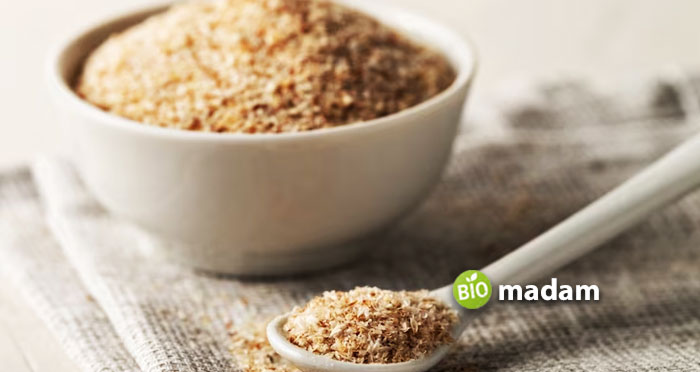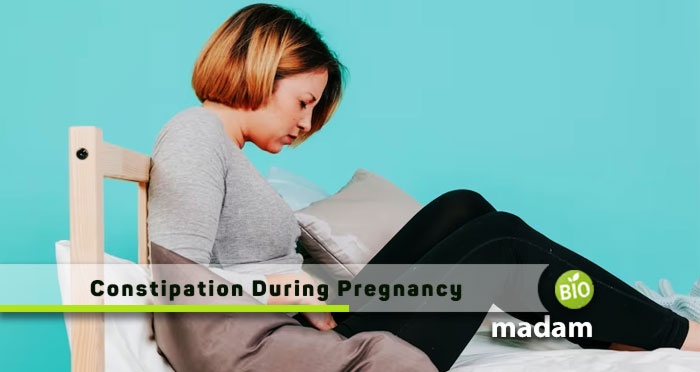Pregnancy leads to many physiological changes in the body, and many expecting mothers experience chronic constipation in their pregnancy. Some women might face constipation throughout the pregnancy, but it is more commonly observed in the last trimester when the fetus puts more pressure on your organs, including the intestines.
Studies show that around 16 – 39% of women experience constipation during pregnancy.
If you are unsure of the causes of constipation and their solutions, keep reading the article to learn what pregnant women can take for constipation.
Causes of Constipation in Pregnancy
There could be various reasons behind constipation in pregnant women, including:
Hormonal Changes
Hormonal changes from the endocrine system affect the gastrointestinal tract leading to heartburn, indigestion, and increased water absorption. The changing hormone levels result in slow GI motility, which increases the water absorbed by the villi and colon. It eventually makes it difficult for the stool to pass.
Uterine Pressure
As the fetus grows, it puts more pressure on the body organs like the stomach, small and large intestines, bladder, etc. Thus, it makes it difficult for the bowel to move through the intestine and excrete properly.
Prenatal Vitamins
Iron is a common mineral in all prenatal vitamins, as most pregnant women need additional iron dosage. This may turn your stools black and also cause constipation.
Lifestyle
Many women think they should only rest during pregnancy and restrict their physical movement. You can carry out routine activities if you have a healthy pregnancy and your doctor has not advised otherwise. A sedentary lifestyle may also lead to constipation during pregnancy.
How to Relieve Constipation in Pregnancy?
You can take over-the-counter medication for constipation during pregnancy or use home remedies. But, making a few dietary and lifestyle changes can also help constipation. Let’s tell you how to relieve constipation during pregnancy.
Drink Water
The pressure on your bladder can make it difficult to drink more water and pee frequently; however, it is essential to a healthy gut. Drinking enough water to stay hydrated and to soften your stools is important. If you do not like drinking water, you can opt for other liquid drinks, including low-fat milk, smoothies, or juices such as celery juice.

Add Fiber-Rich Food to Diet
Another important thing that women often forget during pregnancy is taking care of their fiber intake. A moderate fiber intake with enough water is vital to keeping your gastrointestinal tract healthy. Add at least 25 to 30 grams of fiber-rich foods to your diet to facilitate gut motility. Fruits like bananas help constipation as they are rich in fiber. But remember that a fiber-rich diet will only help when you drink enough water.
Change your Vitamins
If you are taking enough fiber and water with adequate physical activity, your prenatal vitamins may be the culprit behind prolonged constipation. You may ask your physician to change the prenatal vitamin and substitute it with another having less iron.
Physical Activity
You might find it difficult to move much during pregnancy, especially in the third trimester. But sitting all the time will worsen your condition if you have no physical movement. Consult your doctor to ask about exercise and physical activity you can do depending on your condition. Do not be harsh on yourself, but adding a little movement will improve the situation considerably.
Home Remedies for Constipation in Pregnancy
Women often take multiple supplements during pregnancy and avoid using more medicines. Home remedies or homemade drinks are the best for constipation during pregnancy in such a situation. Here are some of the remedies you can use to relieve constipation:
Prune Juice
Prunes or dried plums are considered one of the best choices for constipation due to their sorbitol content. Sorbitol helps relieve constipation by improving GI motility. You may take prunes whole or opt for prune juice. It softens the stools and also helps keep you hydrated. Some people add lemon juice to improve the taste. You may also take apple juice to get rid of constipation.
Citrus Fruits
Citrus fruits are rich in fiber and a good choice for easing constipation. Many people take lemon in the morning with water for constipation relief. But, pregnant women should opt for fruits like oranges and grapefruits to improve GI movement.
Psyllium Husk
Psyllium husk, also known as Isapghol, is a commonly used remedy in Asian homes, especially in the Indo-Pak region. It contains mucilage that reabsorbs water and improves water content in your stool. Yet, again, psyllium husk will not help until you do not take eight to twelve glasses of water. Patients with hypertension are not recommended for this treatment.

Coconut Water
Pregnant women in tropical countries take coconut water in their diet widely. However, you may add it to your routine if you face constipation over a long period. While coconut water does not contain sorbitol or high fiber, it is rich in magnesium and bioactive enzymes that act as laxatives.
Flaxseeds
Flaxseeds help with blood sugar, blood pressure, and cholesterol levels. They are also rich in fiber, making them a top choice for constipation in pregnancy. Pregnant women can use this amazing crop to benefit in multiple ways, including constipation relief. The dietary fiber improves the quality of your stool and makes it easy to pass. Make sure to stay hydrated when you add flaxseeds to your diet.
Yogurt
Yogurt may also help constipation in pregnancy as it contains probiotics that are good for your gut health. Probiotics eliminate constipation by improving the microbiome in your gut to ensure healthy functioning.
Over-the-Counter Medicines for Constipation
Sometimes remedies might work effectively for one person and might not suit the other. Generally, laxatives are offered over the counter for regulating bowel movements in pregnant women. You can find different options, but you must consult your doctor before opting for any of these options.
Bulk-Forming Laxatives
As the name suggests, bulk-forming laxatives add bulk to your stool and allow it to absorb more water. They make the stool softer, bulkier, and easy to pass. These medicines are the first choice for constipation in pregnancy as the body does not absorb them completely and are safer throughout pregnancy. They take between 48 and 72 hours to produce the effect. Though bulk-forming laxatives may lead to discomfort and cramping, you must start with a low dose and maintain hydration.
Calcium polycarbophil, methylcellulose, and psyllium are examples of bulk-forming laxatives.
Osmotic Laxatives
Osmotic laxatives are the second choice of laxatives for constipation in pregnancy. They increase water absorption in the small intestine and pull water from other body parts. Thus, osmotic laxatives soften the stool for easy passage.
These laxatives take some time, and you may experience gas during this period leading to cramping and bloating. It may also cause dehydration by pulling water from other body tissues and organs.
The American College of Obstetricians and Gynecologists recommends Polyethylene glycol as the first option in osmotic laxatives. Milk of Magnesia or Magnesium Hydroxide is also an osmotic laxative belonging to the Saline laxative category. It is a suitable choice as it is a mild laxative for use during pregnancy.
Polyethylene glycol, magnesium hydroxide, and glycerin suppositories are examples of osmotic laxatives.
Stool Softeners
Stool softeners moisten your stool, so it is softer and easier to pass. Stool softeners typically do not have any side effects, but using them over a short period is recommended.
Docusate is a widely chosen option in stool softeners.
Lubricant Laxatives
Lubricant Laxatives may also help you improve your bowel movement. They lubricate your bowel or the inner walls of your intestine to enable smooth passage of stool. But, you must use them after consultation with your healthcare worker.
What Should Pregnant Women not take for Constipation?
Now that we have discussed all the possible natural foods and medications pregnant women can use for constipation, you must avoid a few medicines. These drugs are not recommended during pregnancy:
Castor Oil
Doctors do not typically prescribe castor oil, but it is often used as a stimulant laxative. Besides softening your stool, it may lead to meconium and premature birth.

Misoprostol
Misoprostol is sometimes taken to treat chronic constipation, yet it is not the best choice in pregnancy. Studies show that misoprostol in pregnancy may lead to birth abnormalities such as organ defects, including limbs and the brain. It may also induce labor.
Mineral Oil
Many people also use mineral oil as a lubricant laxative for easy passage of the bowel. But, using mineral oil as a laxative in pregnancy is discouraged due to the chances of lower nutrient absorption and bleeding disorders.
The Bottom Line
Constipation is a common problem in pregnancy and can be quite uncomfortable. It may arise due to a sedentary lifestyle, prenatal supplements, low fiber or water intake, or hormonal changes. Home remedies like prune juice, psyllium husk, and flax seeds may help improve constipation in pregnant women. Yogurt is an excellent source of probiotics for the gut. At the same time, you can use over-the-counter drugs for constipation if remedies do not help much. Osmotic, bulk-forming, and stool-softener laxatives prove to be of help in pregnancy-related constipation. However, make sure to consult your physician before opting for laxatives.
FAQs
What makes a pregnant woman constipated?
Women may face constipation during pregnancy due to various reasons like iron supplements and less physical movement. Changes in hormones, especially progesterone and estrogen, are also linked to constipation in pregnancy.
Can constipation hurt the baby during pregnancy?
Luckily your baby is in the amniotic sac, and changes in your bowel will not hurt the baby. But, you must take care of your gut to stay healthy throughout pregnancy.
Is it OK to push hard to poop while pregnant?
If you are wondering that pooping too hard might lead to miscarriage, it is not true. There is no evidence regarding miscarriage due to pushing too hard to poop while pregnant.

Anna has completed her degree in Pharmacy from the University of Hawaii. She is serving as a research assistant in a pharmaceutical company. She had a great interest in writing blogs, traveling to different parts of the US, and trying delicious recipes in her spare time.

